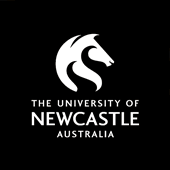Gunther and Watson to Thomson, 12 March 1838
This letter was addressed to the colonial government after the missionaries learnt of plans to locate a police establishment on the Wellington Valley settlement. When it was forwarded to London by the new NSW Governor, George Gipps, in November 1838, it sparked a far-reaching inquiry into the state and future of the Wellington Valley mission. The original letter is located in the State Records of New South Wales (SRNSW 38/2683, 4/2831.1).
-----------------------------------------
Mission House, Wellington Valley, 12 March 1838
Sir
We have the honour to acknowledge the receipt (yesterday) of your letter of the 23rd ult., the subject of which filled our minds with the deepest sorrow. With all humility and respect we beg to submit the following observations to the serious consideration of his Excellency the Acting Governor.
That this mission was undertaken at the instance of the British Government, with the understanding that every protection to the missionaries, and every facility for prosecuting their labours among the aboriginal natives, would be afforded by the colonial government of New South Wales; in accordance with which his Excellency Sir Richard Bourke located the missionaries at Wellington Valley, gazetted the boundaries of the mission land, gave over the buildings on the establishment to the use of the missionaries, and appointed that a non-commissioned officer and six married privates should be stationed in connexion with the missionaries for their personal safety
That the expenditure of the mission (from the circumstance of every article necessary for its commencement and establishment having to be procured out of the annuity of 500 l.) Has been hitherto so heavy as, it would seem, to prevent the Corresponding Committee of the Church Missionary Society applying for such lay labourers as were requisite to place the mission on an efficient plan, in which case the public buildings would have been in requisition, and long ere this would have been available for missionary purposes. The inadequacy of the means for founding the mission on a proper and efficient basis, while it has thrown the entire management of the secular affairs of the mission on the clergymen has also greatly retarded the progress of the mission; but two respectable families for the management of the secular affairs of the mission being daily expected, and other arrangements having been fixed on, the whole of the buildings will be required for missionary purposes.
That there are generally 50 or 60 natives, and frequently 80, resident on the mission, all of whom are supported by the mission, brought under instruction, some of whom, it is believed, when arrangements can be made for that purpose, will erect huts, locate themselves in the immediate vicinity of the mission premises, and cultivate the ground for their own support.
That the missionaries, aware of the inadequacy of the means provided for prosecuting the mission, have hitherto submitted to receive a salary only 60/. per annum and a weekly ration, the same quantities as are allowed Government assigned servants, have studied and observed the most rigid economy in every department of expenditure; and while they thus cannot charge themselves with any neglect of duty, they humbly submit that they have not in any respect forfeited their claim to those facilities from the colonial government in the prosecution of their duties on which they in the first instance were induced to place considerable dependence.
That the vast influx of Europeans on the banks of the Macquarie which has been made during the last two years and is continually being made, while it has a direct tendency to destroy the natural resources of the aboriginal natives for food, places them at every turn in the midst of temptations to those practices which are almost universal on the establishments in the interior, and which cannot fail (unless some strenuous counteractive efforts be made), ultimately to lead to the total destruction of the aboriginal natives, as is already the case with some of their tribes.
That it is not to be doubted that his Excellency the Acting Governor will see the absolute necessity for the aboriginal natives to have the mission establishment at Wellington valley as a quiet and peaceable retreat, where they can be under religious instruction, and at the same time free from those snares which Europeans lay for them in every direction. Nor indeed can it be supposed that when a faithful representation of the great aggravated and daily increasing injuries inflicted on the unoffending aborigines by merciless Europeans shall be made to her Majesty’s Government, the missionaries and their flock will be protected at the station appointed to them by the Government from the intrusion of those whose influence would be injurious.
[transcript incomplete: the letter goes on to explain the circumstances under which a number of settlers and their servants were allowed to occupy some of the settlement buildings from 1835. Because the mission Aborigines must be “entirely secluded from intercourse with Europeans”, the missionaries submit that it was imprudent that government should consider “introducing a penal institution into the very centre of a Christian mission”.]

